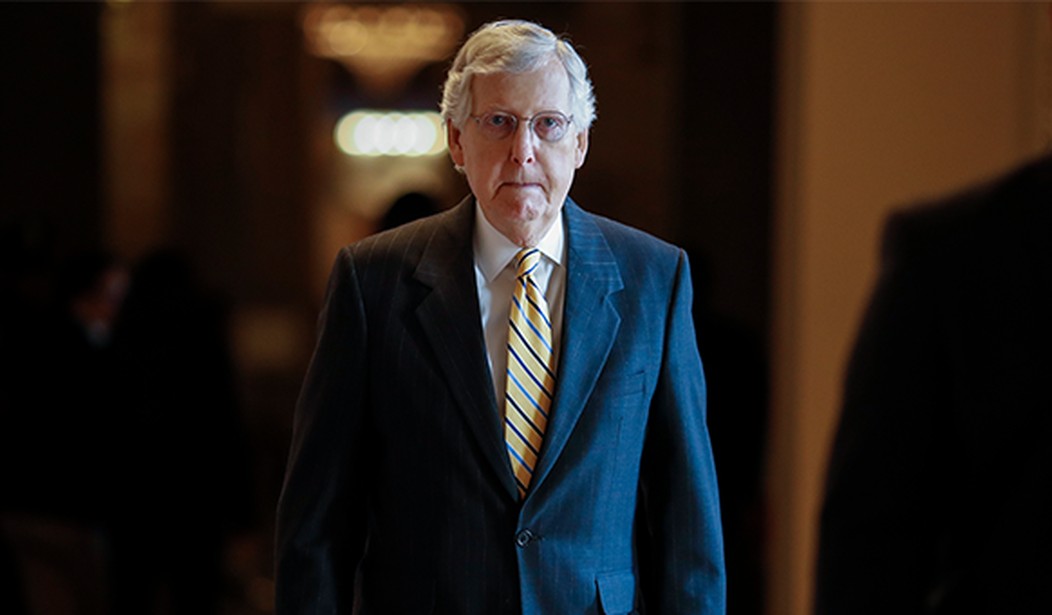Who has taken the economic risk to loan money to cities and states? (Bondholders) Who took the risk of working for a city or state with the promise of an unrealistic pension? (State and municipal employees)
Who is going to pay for underfunded state and municipal pensions, overstaffed state governments and crazy governmental expenditures (think bullet train in California)? Which citizens elected city and state officials who approved and then underfunded pensions, overstaffed governments and approved crazy governmental expenses? Which of those governmental agencies were 100 percent unprepared for any emergency?
These are rhetorical questions. The financial costs associated with these questions should be borne by those who participated, facilitated or were benefited by these financial blunders. And note, barely a single reference regarding coronavirus.
To the extent that a city or state spent additional funds to battle the coronavirus, that should be a federal issue. That should be a national cost; everything else belongs to the individual cities and states. We are a single country and the cost of the coronavirus to date should be a national cost. But, as to future coronavirus costs, should a state determine that they cannot re-open because they wish to be ultra-conservative, that cost should belong to that city or state.
Many states and municipalities were already quickly moving towards economic ruin; coronavirus only exacerbated the issue and accelerated the timing.
Recommended
The coronavirus has hurt everyone, but it should not be a crisis that causes an entire nation to pay for the historical financial imprudence of individual cities and states. If city X or state Y made promises it cannot keep, that is between that city or state and its stakeholders. We cannot ask the citizens of state A to pay for the imprudence of state B. If Illinois over promised and underfunded pension payments to its employees, which it did, this should not be a problem for New York whose pensions were recently funded 95 percent.
There is only a single answer for municipal and state entities which are deeply, deeply under water: bankruptcy. That is what individuals and businesses must do when the overwhelming reality is, they cannot pay their current debts or future obligations.
In the private sector, individuals and companies go bankrupt and start anew. In bankruptcy, the owners and debtors are the major financial victims. However, pensions can also be materially impacted. Those pension plans that are defined contribution plans are generally unimpacted. (This is not to say the pension fund assets have not gone down in value over the past few weeks. This has occurred both with respect to private defined contribution plans and public defined contribution plans.) Those pensions which are defined contribution plans are impacted to the extent of current underfunding, but there is some protection in the private sector through the Pension Benefit Guarantee Corporation, with the PBGC providing a lid on the protection they offer of about $54,000 per pensioner per year. (Note: (1) private businesses stopped creating defined benefit plans decades ago and (2) the PBGC could have funding issues as the result of the coronavirus.)
Cities can and do bankrupt under current law. Cities generally have bondholders and creditors who are impacted, often severely, by bankruptcy. Generally, cities have neither defined contribution plans nor any federal protection from the PBGC. Cities have partially unfunded pension plans. A municipal bankruptcy can lead to general creditors, bondholders and pension recipients all taking financial haircuts as the result of bankruptcy. This can occur through partial extinguishment of bond debt and reduced pension payments.
There will and should be more than a few city bankruptcies in the near future. Citizens should demand bankruptcy where services are being slashed because of historical poor financial management. Those same citizens should find new elected officials to guide their cities.
States cannot go bankrupt. But why not? Should not the states that have been managed the most poorly be able to right themselves through bankruptcy? Bondholders and employees had ample knowledge of the financial situations of these states. Federal judges should be tasked with the responsibility of approving such plans and determine the impacts to both bondholders and pension recipients. This is what happens everywhere else; why not states?
The federal government, which is all the citizens, cannot be asked to bear the burden of individual city and state financial malpractice. Printing money impacts those who were not a party to that financial malpractice. Yes, coronavirus is a price to be shared by all; but cities and states should not be financial beneficiaries of this crisis. Bankruptcy harms the risk-takers: creditors, citizens and employees.
Municipal debt in the United States is about $3 trillion. City and state underfunded liabilities run likely in the hundreds of billions of dollars. It is time for a reckoning for the bondholders and the pensioners.

























Join the conversation as a VIP Member